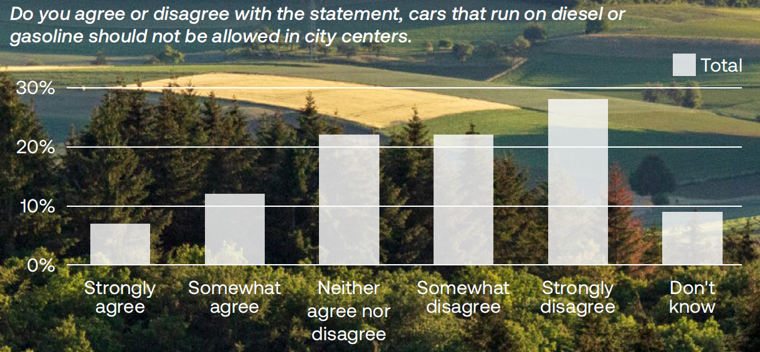The automotive industry in Europe is at an important point, navigating a mix of technological advancements and environmental policies aimed at reducing carbon emissions.
Important changes are happening at the EU level. The Commission has set a target to ban the sale of new cars with internal combustion engines by 2035. Central to the EU's environmental strategy is the electrification of its transport sector, and this proposal is part of the broader European Green Deal, which aspires to make Europe the first carbon-neutral continent by 2050.
Many of the leading automobile manufacturers align with this vision, having announced massive investments in electric vehicle technology and infrastructure. Moreover, initiatives such as the European Battery Alliance are working to build a competitive and sustainable battery manufacturing ecosystem within Europe.
One of the key components of this transition is creating a comprehensive charging infrastructure. The EU acknowledges that the widespread adoption of electric cars depends on the availability of convenient and reliable charging stations. To this end, the socalled Alternative Fuels Infrastructure Directive mandates that member states develop and implement plans to increase the number of charging points. By 2025 the EU aims to have one million public charging points.
Striking disagreements among interest groups
This EU agenda and some of theproposed legislation, however, have proven polarizing in the political landscape. With the new setup of representatives following the summer 2024 elections, some experts believe that the European Parliament may have a harder time passing ambitious climate policies in the coming term. Nonetheless, the tone has already shifted.
For instance, in July 2024, the European People’s Party, the largest group in the European Parliament, presented a draft document that appeared to support weakening the bloc’s plan to phase out internal combustion engine vehicles. In response, battery manufacturers and electricity companies wrote to EU lawmakers, urging them to maintain the ban on selling new cars running on fossil fuels after 2035. They emphasized the need to focus efforts on making the EU industry more competitive instead.
Division in public opinion
These differences in opinion among policymakers are also reflected in public sentiment, according to the Mobility Barometer.
Almost every second person in the Nordic countries, 49 percent, disagrees with an idea of banning the sale of new diesel and gasoline cars by 2035. Only 21 percent believe it is a sensible thought. Men are generally more supportive (25 percent) of a ban than women (17 percent). Interestingly, location also plays a significant role. About 41 percent of people in major cities oppose a ban, compared to 62 percent of those residing in smaller rural areas.
Finland hosts the most negative views, with 59 percent opposing the idea of a ban. Following Finland are Norway (51), Sweden (45), and Denmark (43). Notably, only 12 percent of people in Finland support the idea of banning the sale of new fossil fuel cars starting in 2035.
What we think about fossil fuel bans in city centers
Another emerging trend within many countries is the restriction of certain vehicles in urban areas. A few years ago, the UK introduced so-called clean air zones, aimed at reducing pollution by imposing fees on drivers entering designated regions. Cities like Oslo, Madrid, Paris, Athens, Berlin, and Copenhagen have implemented or are planning to implement restrictions for cars in cities to reduce emissions.
In 2023, Stockholm unveiled plans to prohibit petrol and diesel cars from parts of its core.
However, the public is unconvinced. 19 percent agree that fossil fuel cars should be banned from city centers, while 50 percent oppose this idea. Younger people, particularly those aged under 35, are more supportive, with 25 percent agreeing with a ban, compared to only 16 percent of those aged 65 and older. Similarly, urban residents are more supportive of a ban compared to their rural counterparts.
Differences between countries
Interestingly, there are some differences in sentiment between the Nordic countries. About 60 percent of people in Finland disagree with the concept of a ban in city centers, followed by Norwegians (50 percent), Danes (49), and Swedes (46). Sweden has the highest share of supporters, with 21 percent in favor of a ban.
The debate will continue, and opinions will clash, but at its core, few question the need to reduce emissions from transportations. The path to achieving this goal will be shaped by political decisions, technological advancements, companies' adaptability, economic conditions – and public behavior.







